Most Americans support negotiations with Iran over their nuclear program, even though few trust that Iran will keep to their side of any deal
There are many things Americans agree on when it comes to U.S. dealings with Iran: the country is not a friend to the United States, and is not to be trusted, for example. But in the latest Economist/YouGov Poll the public still supports continued negotiations with Iran over its nuclear program, while expressing a willingness to use force should Iran violate any agreement.
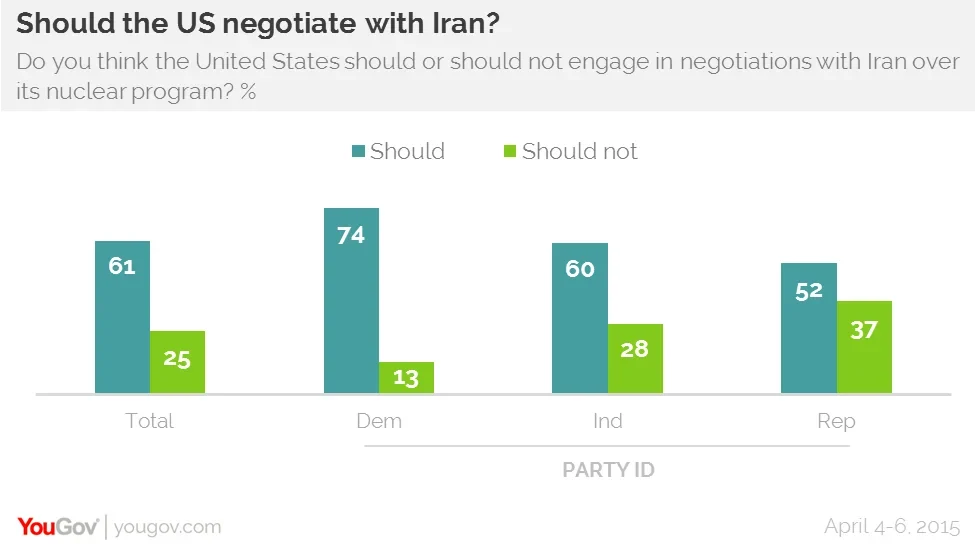
The long-term distrust of Iran continues. Nearly eight in ten label Iran as an unfriendly country or worse, with 44% saying it is an enemy to the U.S. Will Iran live up to any agreement? Only one in four think it is even somewhat likely it would, while two in three view that as unlikely.
Americans also doubt that inspectors would be able to verify Iran’s adherence to any agreement. By similar margins, they are dubious there will be a formal agreement in place by June 30, the current deadline.
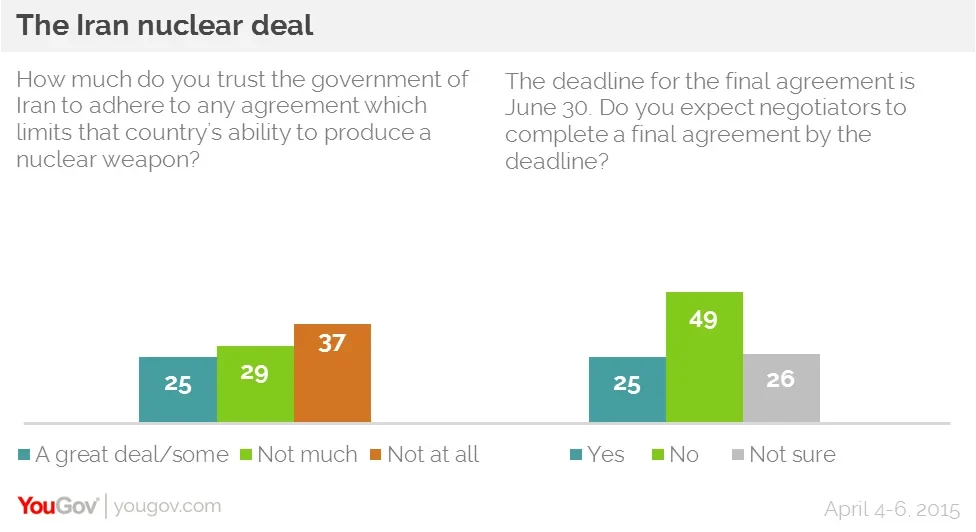
In January 2014, two months after the temporary agreement with Iran to halt nuclear weapons production was announced, Americans felt much the same way: just one in five believed Iran was even somewhat likely to adhere to any agreement, and 58% regarded Iran as a serious threat to the United States. This week, the results are similar.
However, there is some hope that there will be an agreement, even if one is not in place by the agreed-on June 30 deadline. More think an agreement is unlikely, though the margin is relatively narrow. Democrats are hopeful; Republicans are not.
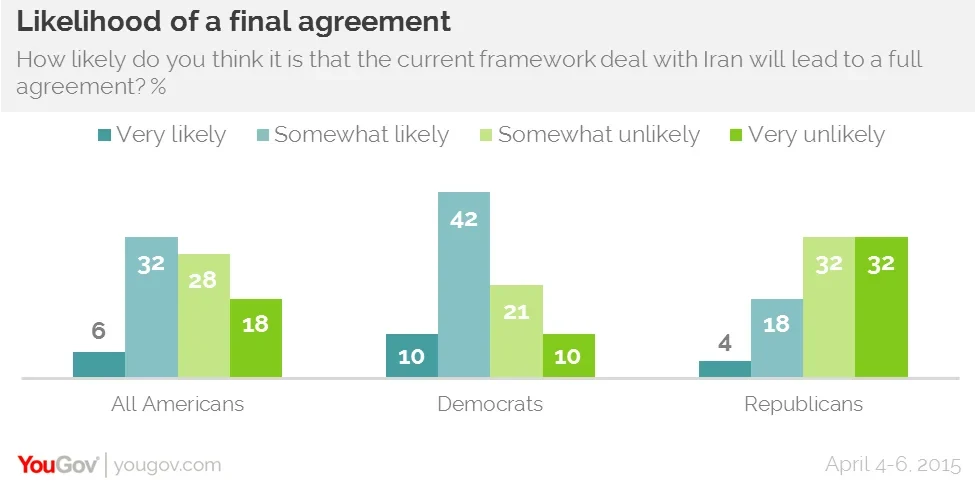
For many Americans, U.S. differences with Iran may be unsolvable. 54% say they do not expect that Iran will be friendly to the U.S. in their own lifetimes. Those under 30, who presumably will have the longest lifetimes, agree.
In recent weeks, as the fight over any agreement with Iran became extremely partisan, with Republicans in the Senate sending a letter to Iran warning that an agreement might not last past the Obama Presidency and the Speaker of the House inviting the Israeli Prime Minister, Benjamin Netanyahu, to address Congress on Iran, some attitudes towards agreement with Iran have become more partisan. For example, more Republicans now than just a month ago have no trust that Iran would live up to any agreement, while Democrats have become somewhat more trusting.
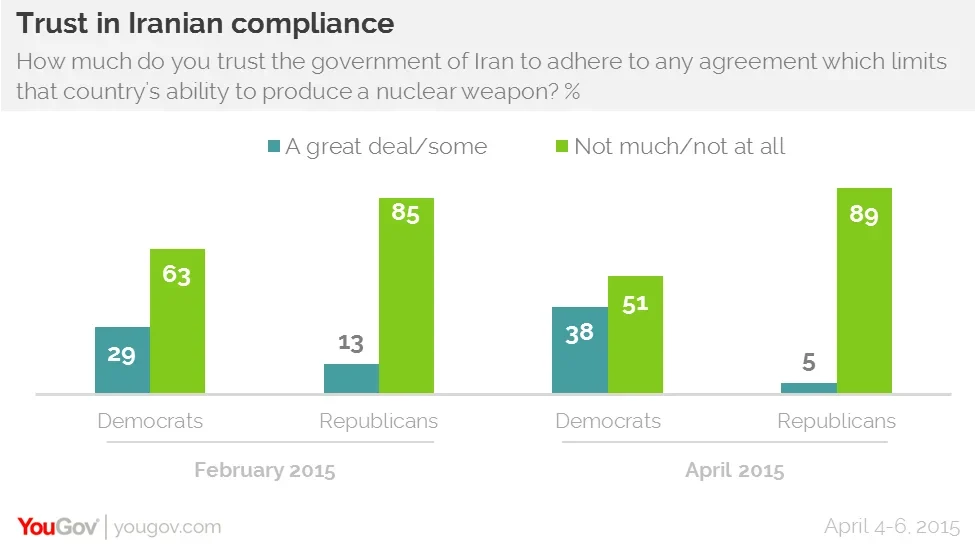
The movement of partisans in different directions has had little impact in the overall results on this question.
There is willingness to think about the use of force to end any Iranian nuclear weapons development. More than twice as many say in principle they would use military force in order to prevent Iran from developing nuclear weapons as say they would avoid military conflict with Iran even if that meant Iran might develop nuclear weapons. Democrats and Republicans agree, though by different margins.
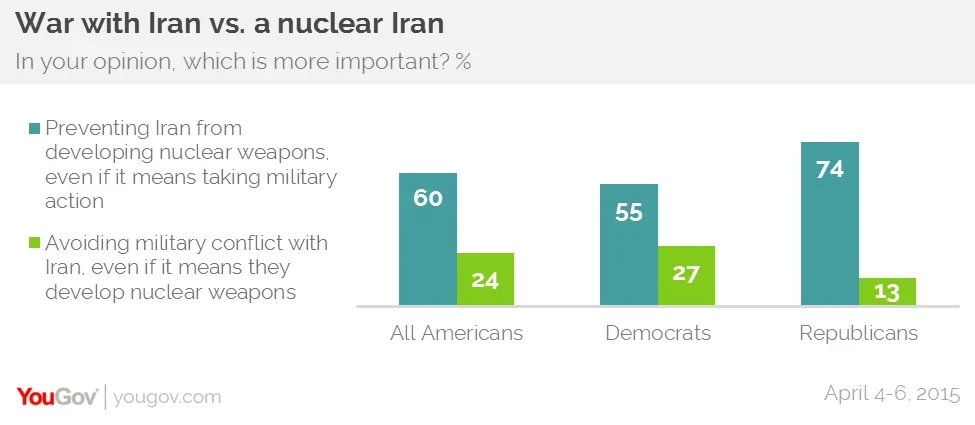
But that was in principle. There is less overall support for military action if Iran doesn’t abide by the terms of an agreement. Republicans overwhelmingly support military action under this circumstance, while Democrats are evenly divided.
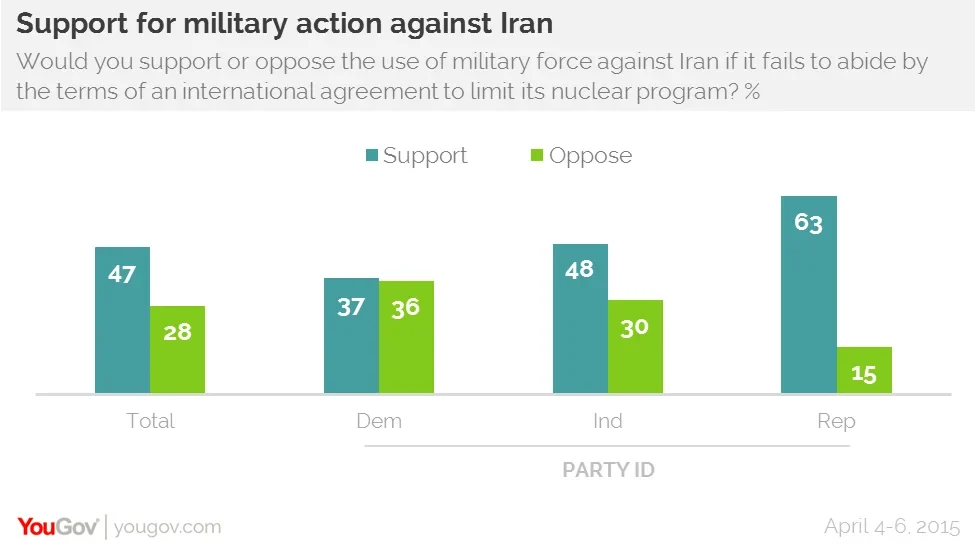
In general, as they have in the past, Republicans are much more likely to favor the stick to the carrot when it comes to negotiations with Iran, and in recent weeks, they have become even more in favor of using the threat of military action or increased economic sanctions as a way of getting to an agreement that eliminates any nuclear threat from Iran. Democrats, after the announcement of the framework for an agreement, are even less likely to support threats as a means to reach agreement than they were before the framework was announced, and more likely to favor offering rewards to reach agreement.
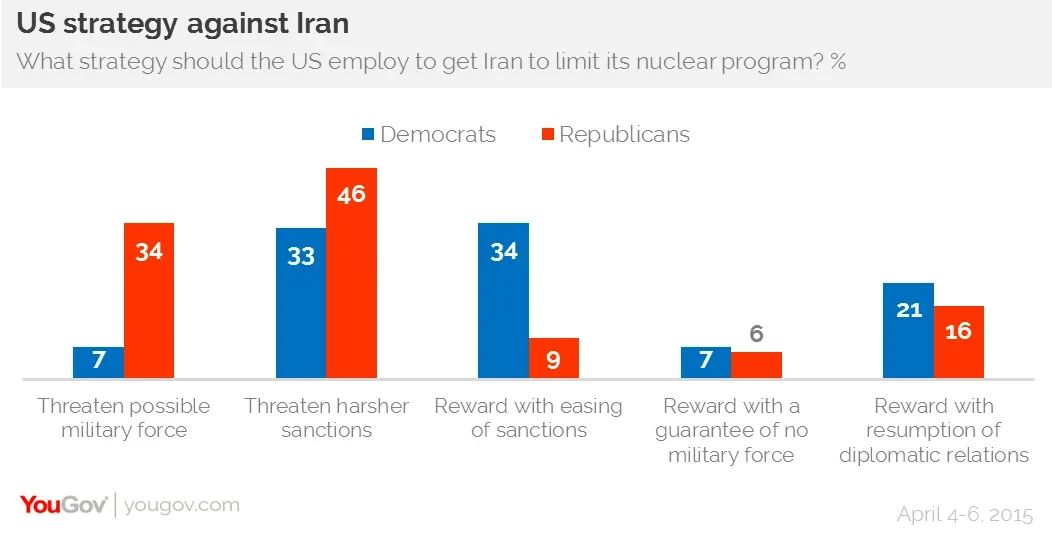
That same partisan split occurs when Americans are asked whether the agreement makes the U.S. more or less safe. A majority of Democrats are hopeful, a majority of Republicans are not.
So the current framework for agreement gets mixed reviews. Americans are more attentive to the negotiations than they were a month ago. But many are unsure what they think about the framework. Support only narrowly outweighs opposition. As on so many Iran-related questions, the parties differ dramatically.
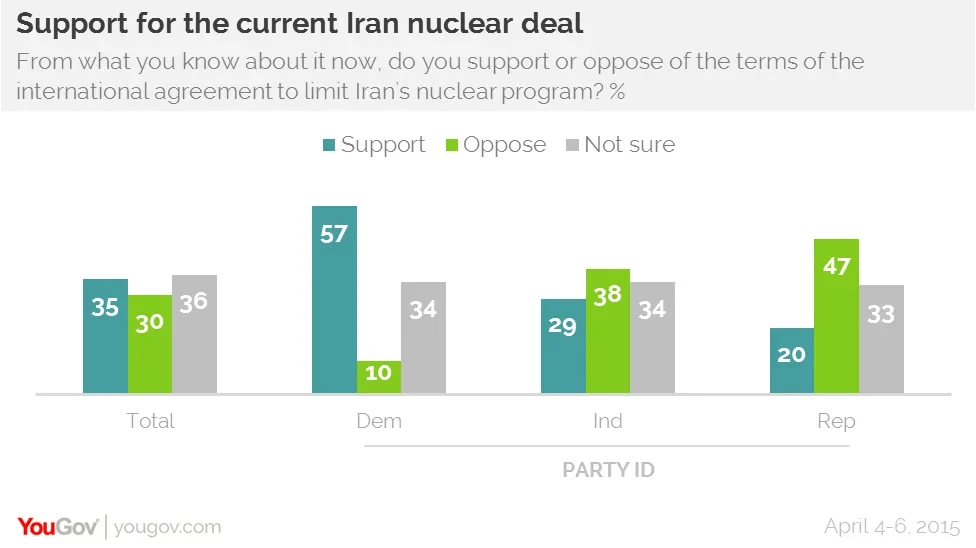
Economist/YouGov poll archives can be found here.








